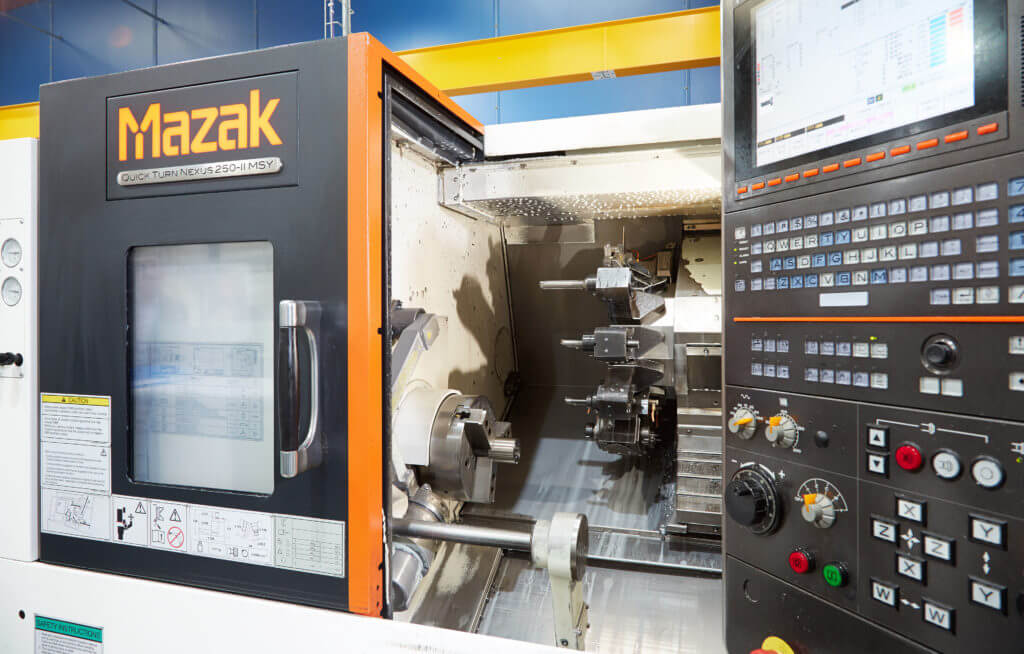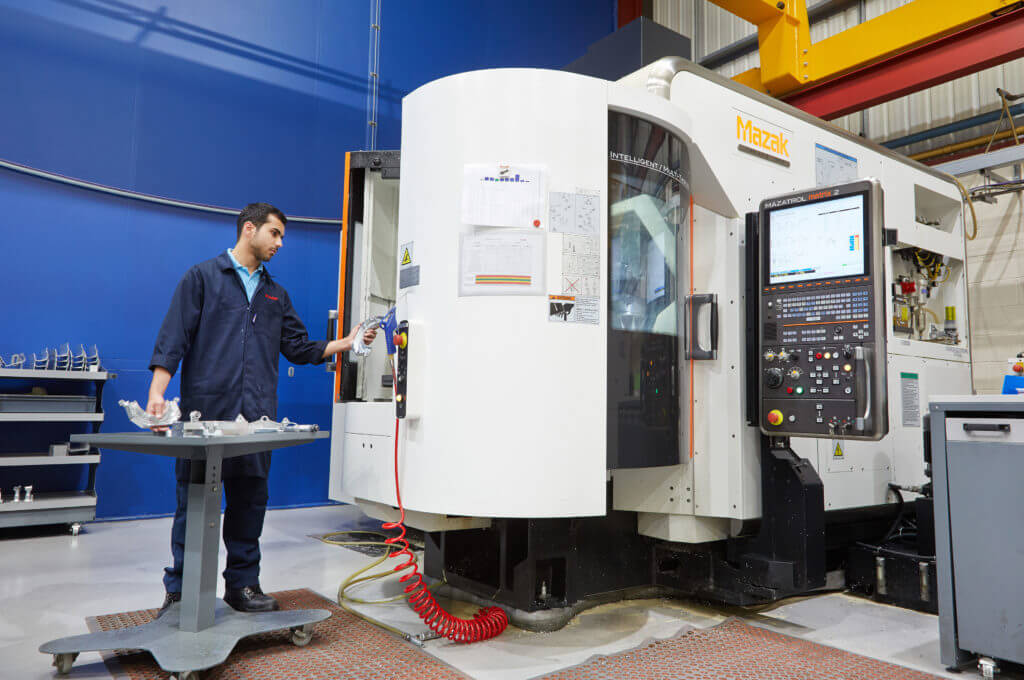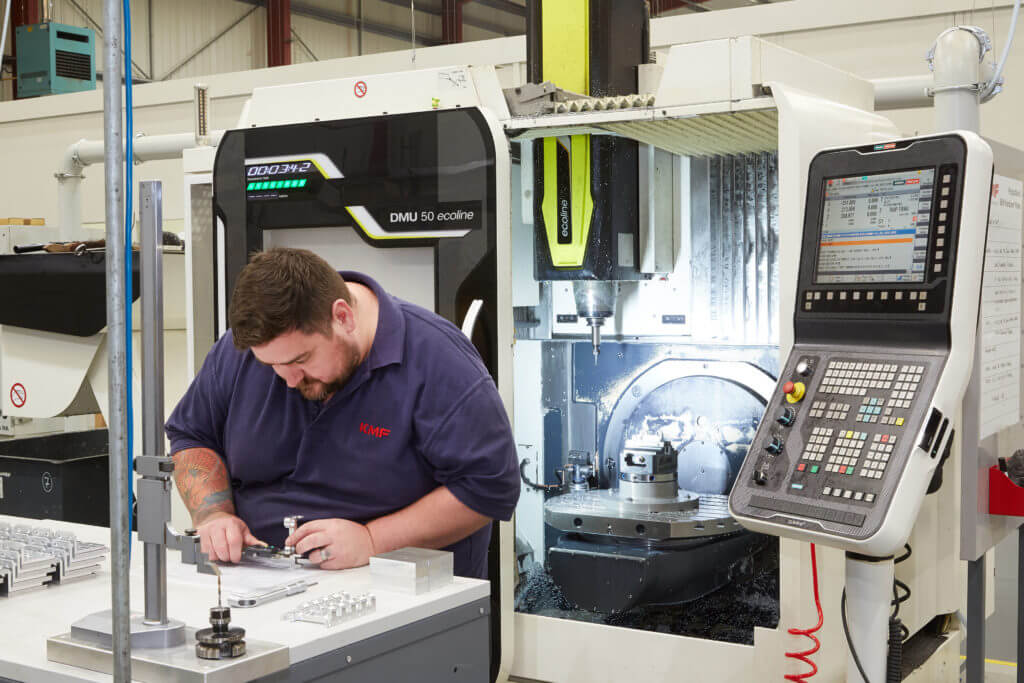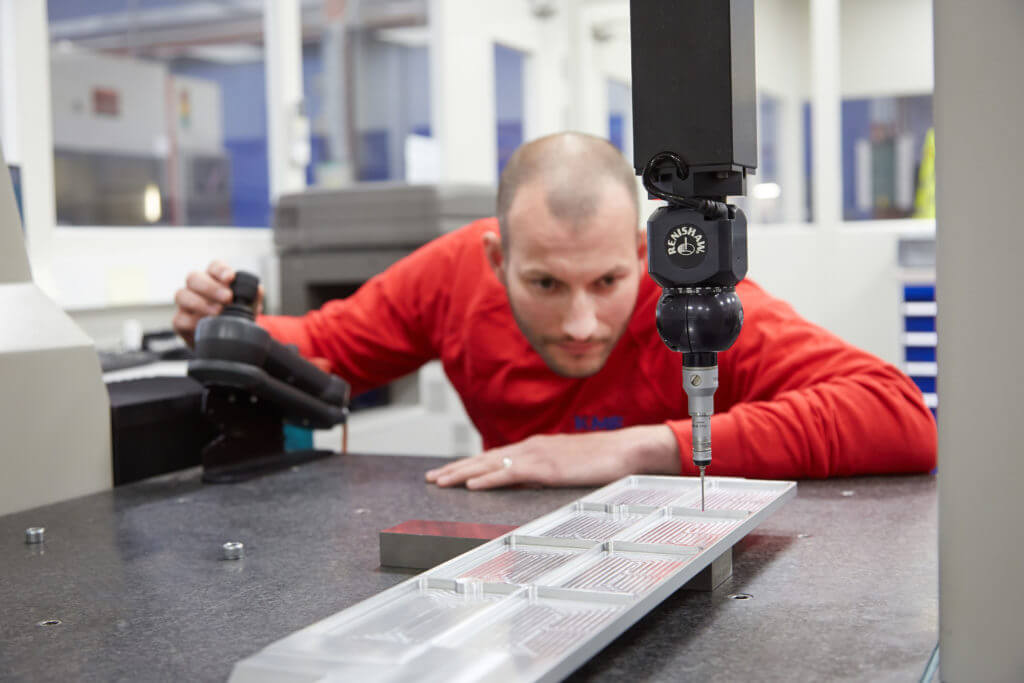KMF Engineering is one of the country’s leading precision engineering companies. Working with MCS to adopt DNC 5000 and machine tool monitoring systems has helped to ensure that they continue to meet changing market demands. Based in Newcastle-under-Lyme in Staffordshire, KMF Precision Engineering are part of KMF Group.
KMF Group provides contract metal manufacturing solutions across a wide range of industry sectors. As well as KMF Precision Engineering, the group consists of another two facilities: KMF Precision Sheet Metal in the UK and KMF Precision Sheet Metal in Slovakia. In 2016, the group expanded with the acquisition of Newcastle cycle component manufacturer, BETD Components.
Taking control of machining processes and data was a priority for KMF Precision Engineering, as Rob Carter, the company’s Quality Manager, explains:
“I was made Project Lead for the offline programming project, which started about 2.5 years ago. At that stage, we were programming all our programmes on the consoles, which was taking up valuable capacity. We looked at ways to make our processes more robust, streamlined and cost-effective through MCS. MCS offered us complete control over the transfer of programmes from server to machine and back again.” This has led to what Rob describes as “a good synergy” between KMF and MCS.
“The machine monitoring data support that MCS provides is key for us. We use it as a tool for our business to identify where we can make improvements in the machine centres. For instance, we look at how efficient a machine’s been for that week or because we now have live analytics, we can view feedback on a desktop computer or via a phone app to see the efficiency of our machines within 15 minutes. So, for example, we’ve got priority work on a machine, and it’s been running consistently at 70%, but for a 15-minute slot, it drops down to 20%. Having that insight through MCS gives us the facility to investigate why the machine has dropped pretty much as soon it happens. Maybe it’s a broken tool, maybe we’ve got an issue with a material: whatever the problem is, the system enables us to get that machine back up and running. Because the more spindle cutting time we’ve got, the more value we can get out of our machines!”
Streamlining programme transfer
The DNC 5000 implementation has proved highly valuable for enhancing programme transfer and NC file management, as Rob says: “Previously when a programme had been programmed, it was stored on memory sticks. That meant that potentially for just one part-number, you could have had five or six different programmes, so if the part ever got up-issued, or there was a change to the drawing or the programme, you had to make sure you were capturing all that on five memory sticks. Now it’s on one centralised DNC5000 server, so you type the programme number required at the machine control and it automatically loads the NC programme in from the server into the machine. When NC files are saved any amendments that have been made to that programme, once it gets sent back, it goes into a quarantine folder and then the programmers decide whether the changes were relevant or whether it needs to be reset and then go back to the initial programme.
We have complete control over programme transfer. Together with the monitoring data, it has been vital for us in driving our business targets.”
Meeting standards
Rob recognises the crucial connection between having the right level of machining data and meeting industry standards: “We made the changes based on the needs of our customer base and to adhere to standards. We are currently ISO 9001 2015-accredited, but we’re looking at pushing to AS9100 which is the next level because the aerospace sector is a big growth area for us. AS9100 requires complete traceability over certain areas in control and working with MCS and using DNC5000 will help us to achieve that.”
An easy transition
Making such significant changes relies not only on selecting the right products but also on finding the right partner: “We’ve benefited from a very good working relationship with MCS. They are very knowledgeable, and any issues that have come up have been addressed in good time. I think MCS is beneficial for any business because once you’ve got them on board and you have implemented the processes, MCS monitor the data and control the programme transfer for you. That means you don’t have to worry about ever calling in the wrong programme. As well as making your manufacturing processes robust, you can also monitor and measure them much more effectively. Because it’s ingrained into the KMF Precision way of thinking, we are now looking at working with MCS for connecting another machine up to the DNC and for data monitoring. We will rely on MCS for new machines in the future to ensure that we have continuity and consistency throughout the facility.
I highly recommend MCS. We had a smooth transition to the new way of working thanks to them. They also made my job of Project Lead a lot easier! Initially, I leant on MCS a lot as I’m not originally from a machining background. It was a big learning curve for me, so it was good to have MCS there to work alongside me. It never felt like hard work. They have been responsive and proactive for us, and it’s been a pleasure to work with them.”




